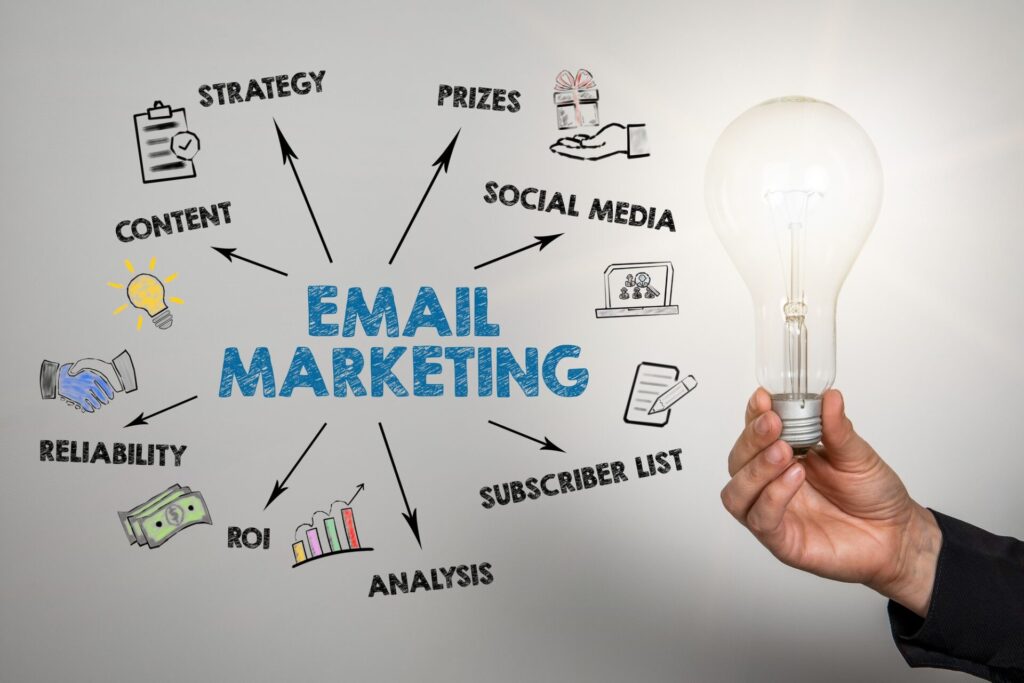
Introduction.
In the dynamic world of e-commerce, establishing a strong brand presence is crucial for success. One of the most effective ways to boost your e-commerce brand is through email marketing. This blog post will provide an in-depth analysis of how email marketing can elevate your e-commerce business, offering detailed insights, historical context, and practical strategies. Understanding the power of email marketing is essential for driving engagement, building customer loyalty, and increasing sales.
Historical Context of Email Marketing

Email marketing has been a cornerstone of digital marketing since the advent of the internet. The first marketing email was sent in 1978 by Gary Thuerk, a marketing manager at Digital Equipment Corporation, to promote their products. This single email generated $13 million in sales, showcasing the potential of email as a marketing tool. Over the decades, email marketing has evolved with advancements in technology and changes in consumer behavior, becoming a sophisticated and highly targeted channel.
Benefits of Email Marketing for E-commerce Brands

Email marketing offers numerous benefits for e-commerce brands, making it a vital component of any digital marketing strategy. Here are some key advantages:
Direct Communication
Emails arrive straight in the recipient’s inbox, guaranteeing that your message is seen, unlike social media or sponsored advertisements.
Cost-Effective
Sending email marketing emails is relatively inexpensive compared to other forms of marketing. It is affordable, making it available to companies of all kinds.
High ROI
A high return on investment (ROI) is consistently obtained from email marketing. According to a study by the Direct Marketing Association, email marketing has an average ROI of $44 for every $1 spent.
Personalized Engagement
Emails can be personalized to cater to the individual preferences and behaviors of customers, increasing engagement and conversion rates.
Measurable Results
With email marketing, you can track and measure the performance of your campaigns in real time. Metrics such as open rates, click-through rates, and conversions provide valuable insights into your audience’s behavior.
Effective Strategies for Ecommerce Email Marketing

To maximize the impact of your email marketing efforts, it’s essential to implement effective strategies. Here are some proven tactics:
Personalization
Personalization goes beyond using the recipient’s name. It involves tailoring the content based on their preferences, browsing history, and purchase behavior. Personalized emails create a more engaging and relevant experience for your customers.
Segmentation
Segmenting your email list allows you to send tailored communications to distinct customer segments. Segmentation can be based on various factors, such as demographics, purchase history, and engagement levels. This approach ensures that your emails are relevant and valuable to each recipient.
Email Automation
Email automation involves setting up triggered emails that are sent automatically based on specific actions or time intervals. Examples include welcome emails, abandoned cart reminders, and post-purchase follow-ups. Email automation saves time and ensures timely communication with your customers.
Compelling Content
Creating compelling content is crucial to keeping your audience engaged. This includes well-crafted subject lines, visually appealing design, and valuable information. Use high-quality images, videos, and interactive elements to make your emails stand out.
Common Mistakes to Avoid

To ensure the success of your email marketing campaigns, avoid these common mistakes:
Overloading with Information
Don’t overwhelm your recipients with too much information in a single email. Keep your messages concise and focused.
Ignoring Mobile Optimization
With a large number of customers reading emails via mobile devices, making your emails mobile-friendly is critical.
Not Testing Campaigns
Regularly test different elements of your emails, such as subject lines, content, and send times, to optimize performance.
Neglecting Analytics
Track and analyze your email marketing metrics to understand what’s working and what needs improvement.
Failing to Segment
Your entire list may become disengaged if you send out generic emails. To deliver more pertinent material, always categorize your audience.
Conclusion

Email marketing is a powerful tool for boosting your e-commerce brand. By leveraging personalization, segmentation, email automation, and compelling content, you can create effective campaigns that drive engagement and sales. Avoiding common mistakes and continuously refining your strategy will help you maximize the potential of email marketing. Whether you’re sending an electronic newsletter or working with an email marketing agency, understanding these principles is crucial for your e-commerce success.
Recent Posts
-
 Email Marketing Strategies to Boost Ecommerce Sales: Your 2025 Playbook07 Nov 2025
Email Marketing Strategies to Boost Ecommerce Sales: Your 2025 Playbook07 Nov 2025 -
 Transform Your E-commerce Strategy: 5 Essential Email Marketing Campaigns19 Nov 2024
Transform Your E-commerce Strategy: 5 Essential Email Marketing Campaigns19 Nov 2024 -
 10 Common Email Marketing Myths in E-commerce: Separating Fact from Fiction19 Nov 2024
10 Common Email Marketing Myths in E-commerce: Separating Fact from Fiction19 Nov 2024 -
 The Ultimate Guide to Scaling Your E-commerce Business Using Email Marketing19 Nov 2024
The Ultimate Guide to Scaling Your E-commerce Business Using Email Marketing19 Nov 2024 -
 Ecommerce Email Marketing 101: A Beginner's Guide to Success19 Nov 2024
Ecommerce Email Marketing 101: A Beginner's Guide to Success19 Nov 2024
